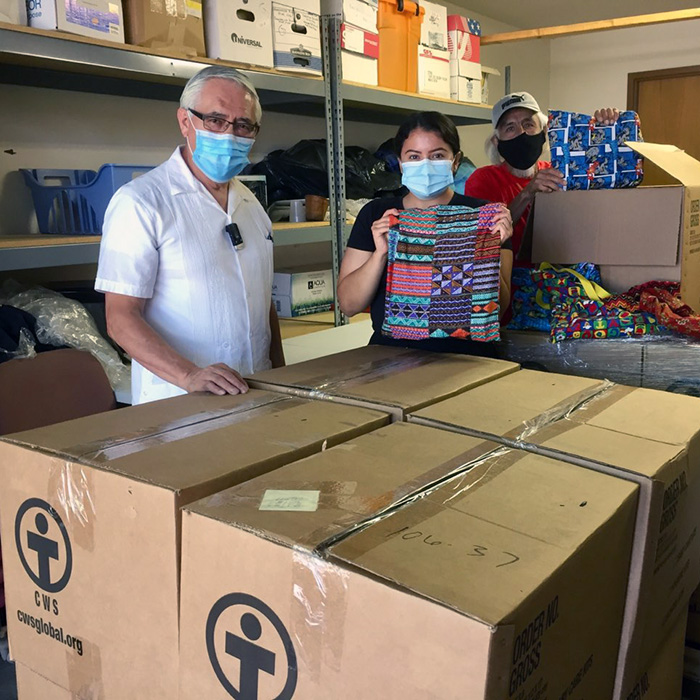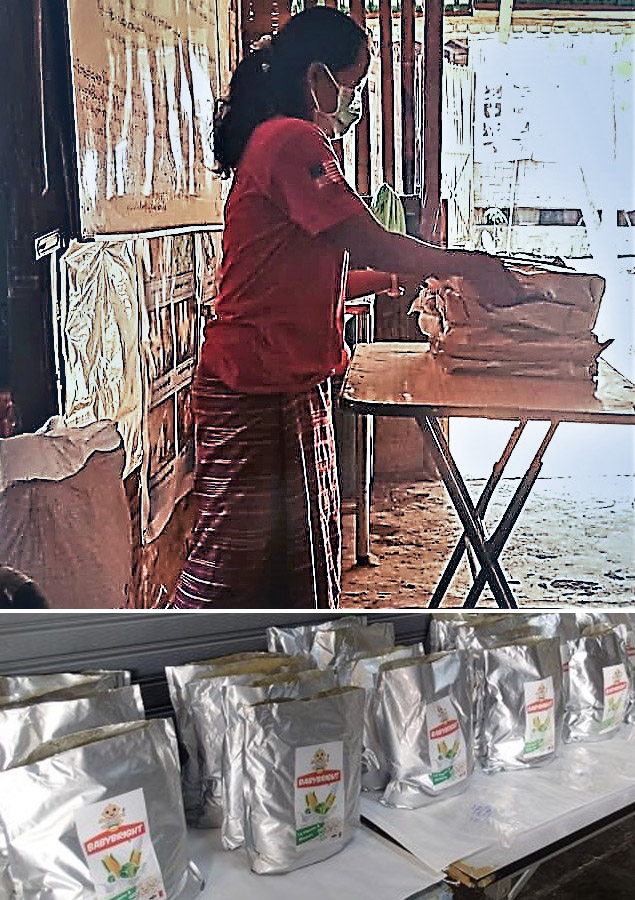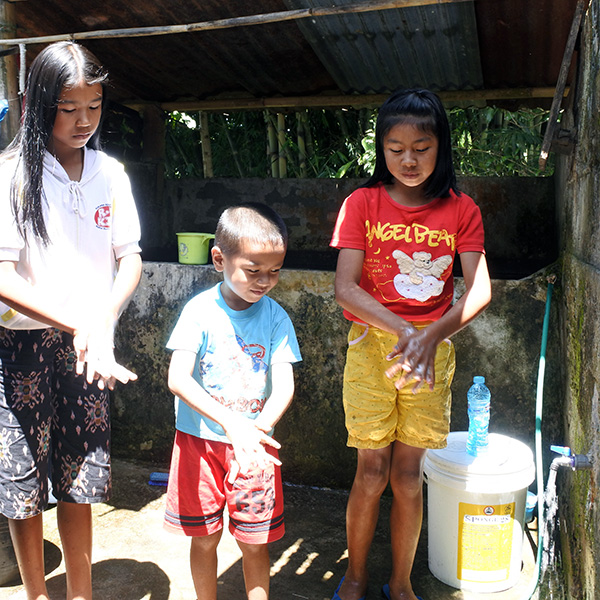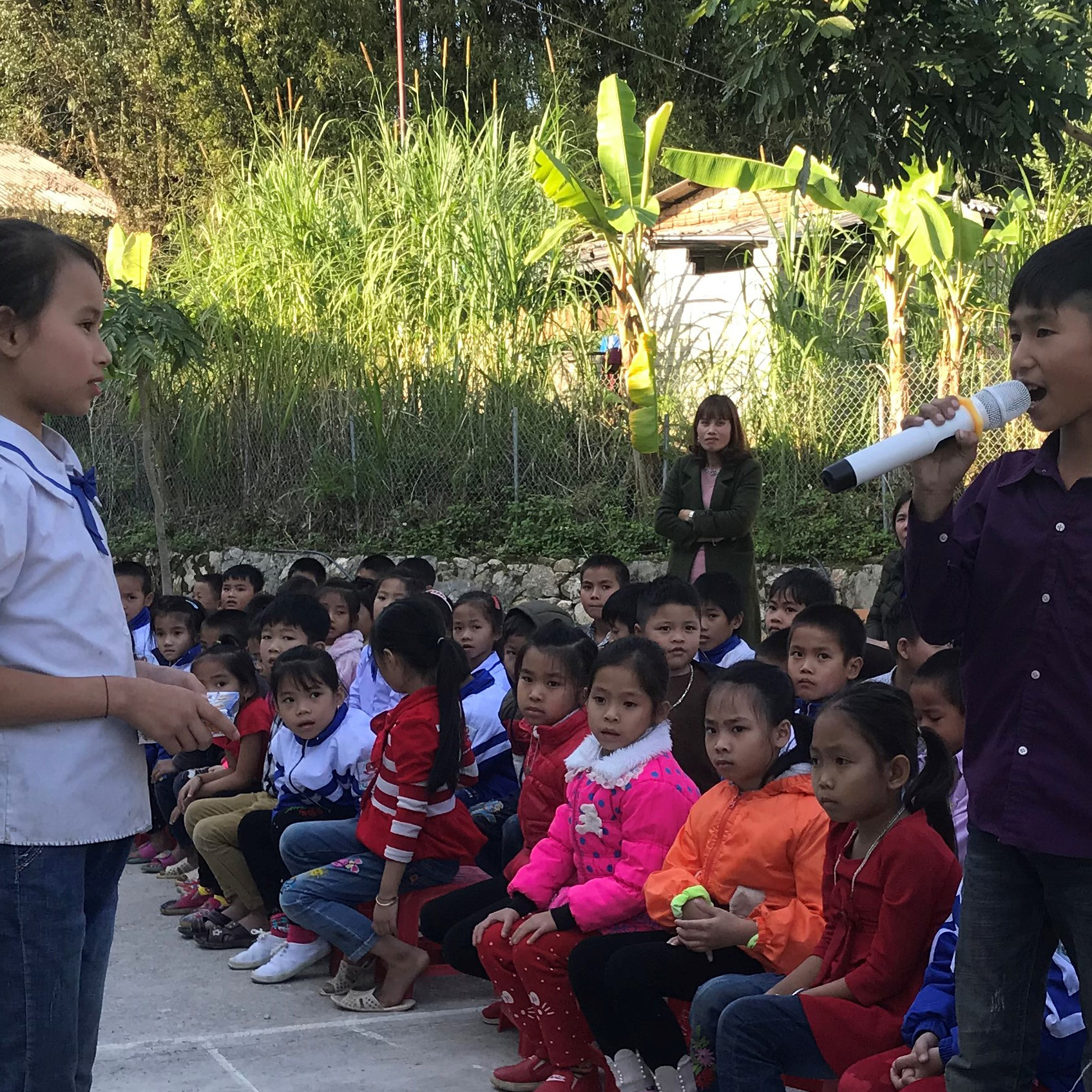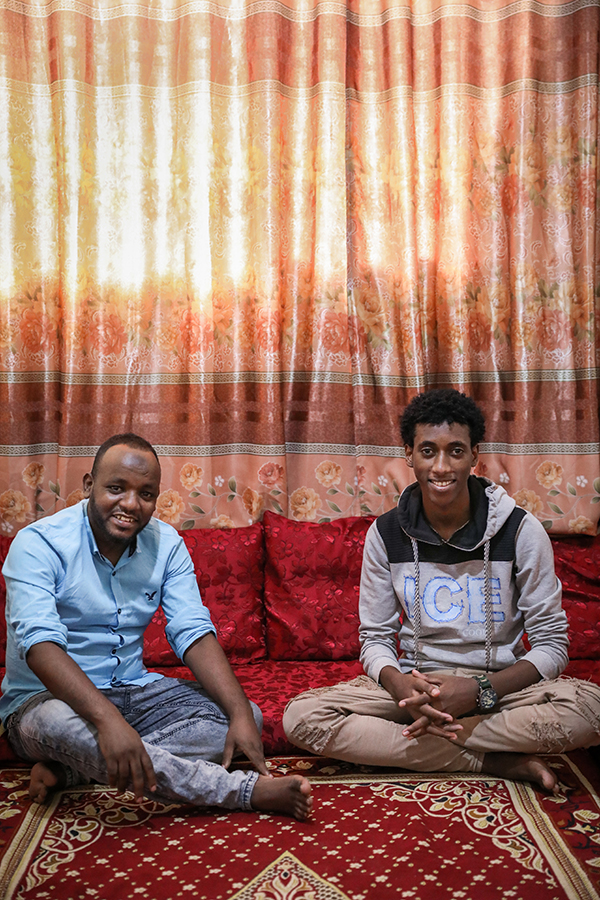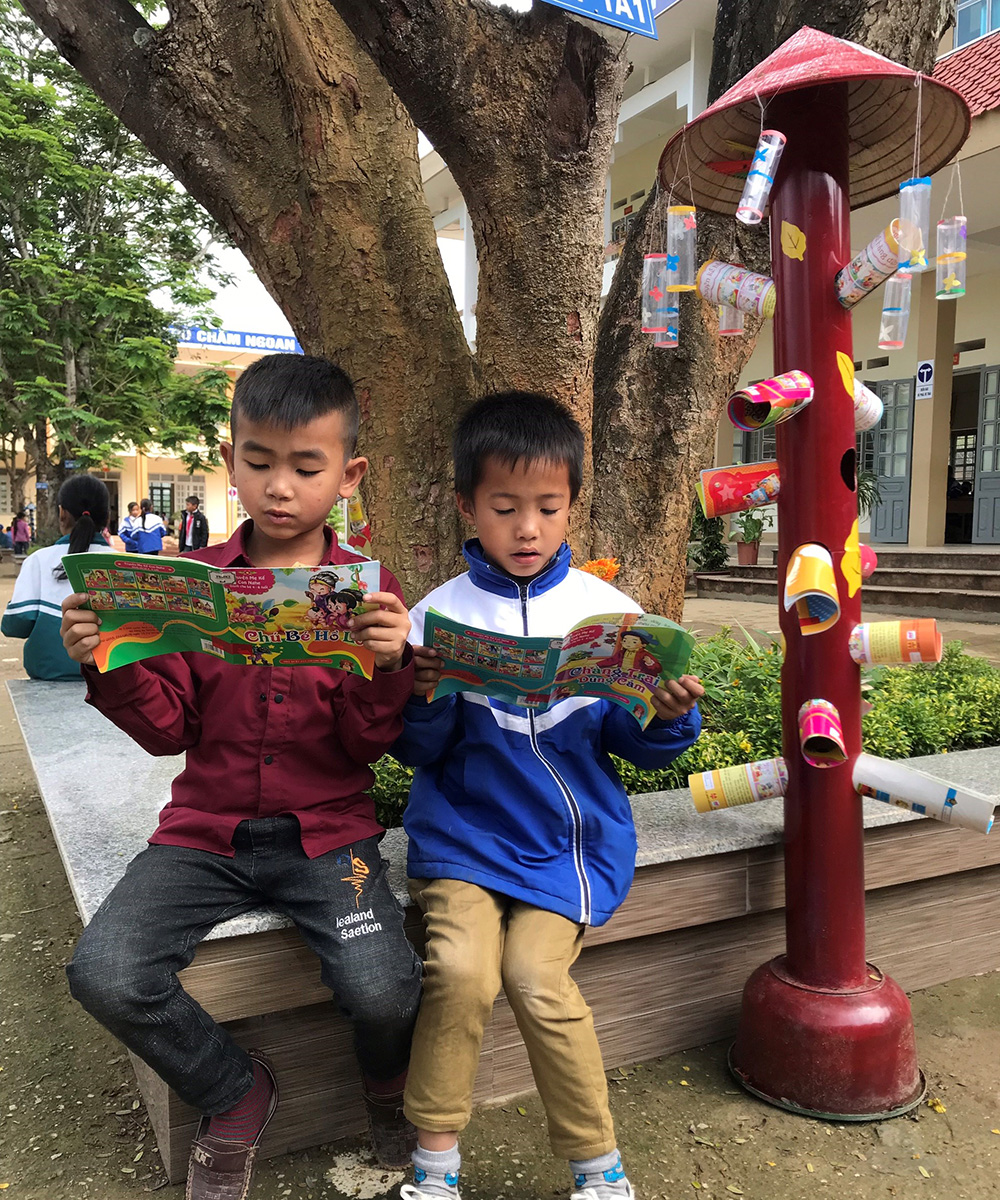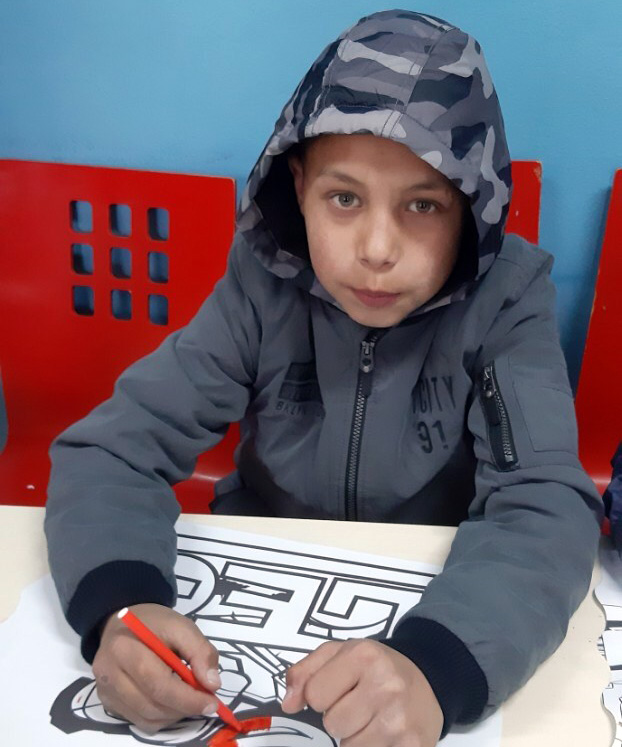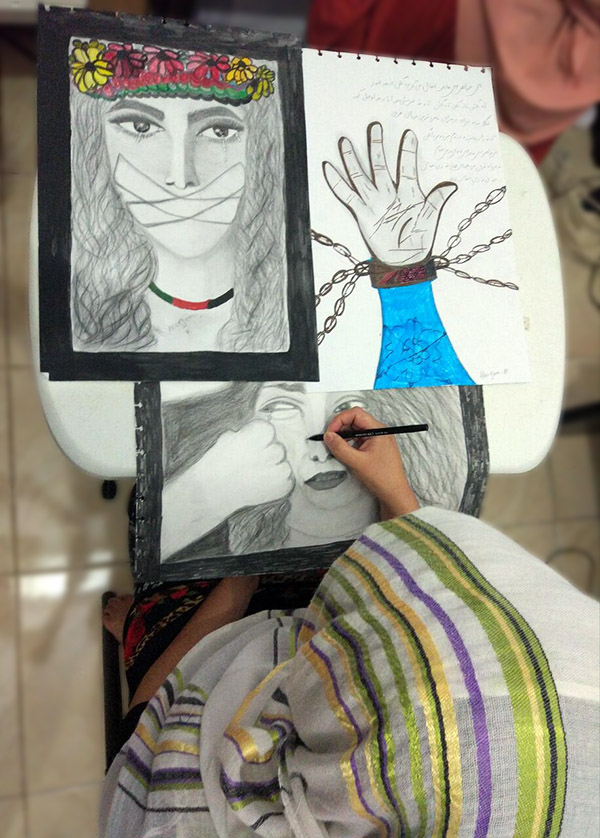A young asylum-seeker is raising her voice for her sisters through art and poetry
“This issue gets worse day by day, and I hope my story will not just raise awareness but will give strength and hope to victims.”
Laila* is talking about gender-based violence, which she experienced in its most horrific form a few years ago.
The oldest of seven children, Laila grew up in the isolated and conservative central highlands of Afghanistan. In her community, girls are discouraged from going to school. Traditional thinking and local leaders still insist that women should not have the same rights as men.
Luckily, Laila’s own family was more open minded. Her father is a teacher and an advocate for women’s and girls’ education. Because he spoke up about this, his family received threats. One afternoon a few years ago, those threats turned to action. Laila was kidnapped when she was walking home from school. For three months, she suffered unimaginable abuse. Finally, one evening, she was able to escape. The men who were supposed to be watching her got into a fight, so she seized the opportunity to sneak out of the house. She recognized the neighborhood as one about two hours from her home, so she ran back to her house. Her family was amazed and relieved to see her, but they knew that it wasn’t safe for her to stay with them. As countless fathers of children in danger have done before him, Laila’s father arranged for a smuggler to get her out of Afghanistan to India and then on to Malaysia and eventually Indonesia.
When she arrived in Indonesia, Laila made her way to the United Nations High Commissioner for Refugees to register as an asylum seeker. After she registered, she was directed to a CWS-hosted group home in Jakarta, which is operated with generous support from the Australian government.
For the first time in her teenage life, Laila felt the tension leave her body.
“I felt free, which is such a great feeling. Everyone is respectful towards one another. I’m feeling so relieved because I’m in a respectful society where men and women are seen as equal.” In her new home, Laila, 17, is with other Afghan girls as well as women and girls from other countries, too. “It is nice to live in a multicultural home, learning about and respecting other cultures. I am missing my family a lot, and I cry many nights. On these nights, even the non-Afghan girls from Somalia, Ethiopia and Iraq all comfort me, and this shows me one thing: that we are in this together regardless of our background,” she says.
Laila is on a path to healing in the CWS home. As soon as our team heard her story, we worked with counselors to find a way to support her. “The first thing that CWS did after I shared my story was to send me to a psychologist,” she says. “And it helped me so much. The psychological counselling, and the daily comfort and assurance from my Social Workers helped me get my mental state better every day. I talked a lot to my Social Workers, too! They are both so kind and understanding. Coming from my area, it was hard to trust anyone, but I trust all of them absolutely and will do whatever they said is necessary, because I know their intention is good, and that is to help me recover. I am grateful.”
The 16 Days of Activism worldwide campaign runs from November 25 through December 10 each year – from the International Day for the Elimination of Violence Against Women to International Human Rights Day. CWS encouraged all of the children and women living in the group homes that we host to participate in the campaign. Laila created three pieces of art and wrote a poem for everyone who face, survive and overcome violence against women and girls.
This was her poem:
For all women, do not keep quiet.
Raise your voice, because your Rights are equal.
It is time to find yourself, because you are not someone that just does whatever a man says.
Women too are powerful.
Raise your hand and make your future better.
Do not keep quiet, even when they have handcuffed your hand.
Being a woman is not a crime.
Laila started writing poetry when she was eight years old. She saw too many tough moments around her, such as girls being forced to marry at young ages and girls who weren’t able to go to school. For Laila, her poetry was a way to escape. She writes poems to express “the pain of others, and things that she saw and experienced.” She says, “I want to be the voice of all women who can never speak up, those who keep their pain inside, and for those whom will get punished and excluded for speaking up.”
Laila wants to share two of her poems and the stories behind them:
—-
Afghan Women’s Pain
Thousands of words are captive in their throat
I am a woman, the piece of Farkhunda’s body I am
I am a woman, the generation of aggrieved Farkhunda I am
I have been under violence for years
I am a woman, from the poor, pity generation I am
I am a woman on the awestricken road I am
I am a woman, the generation of Aisha and burnt Farkhunda I am
I have been under perverted eyes for years
I am screaming but nobody hears me, I am a woman
Yeah! The generation of poor Farkhunda I am
Laila explained to our team that this poem is about two real Afghan women, Farkhunda and Aisha. A Mullah falsely accused Farkhunda of burning the Qur’an. The gathering crowd, not understanding what was happening, sided with the Mullah after the Mullah yelled to the crowd that Farkhunda had just burnt a Qur’an and thus must be killed. The angry crowd savagely killed her. Later investigation revealed that Farkhunda did not burn the Qur’an. Bibi Aisha case is slightly more well-known, as she appeared in the cover of TIME magazine. Aisha’s face was mutilated by a Taliban, after her father ‘traded’ her for marriage to a Taliban fighter in compensation for a killing that her family did. Aisha managed to run away and returned to her family, but her father returned her to her husband’s family. As a punishment for running away, they brought her to mountain side, cut off her nose and left her to die. Luckily, she was found by aid workers, managed to heal and is currently living in the US.
—-
Afghan Women
Gloom of a woman has stories
Being a woman in my country is harrowing
Pains of tears after tears, being a woman is harrowing in my country
Afghan women have silent and bitter songs
Their life has thousands of journeys
In my country, how else can women suffer?
Laila interprets her poem like this:
– Being a woman in Afghanistan means that you likely won’t be able to access education or participate in society.
– Being a woman in Afghanistan is like being a bird, which can sing and make music. But in Afghanistan that song is sorrowful.
– Being a woman in Afghanistan means your voice is always silenced and you can’t sing your songs.
– Being a woman in Afghanistan means a thousand rough “adventures” but not being able to speak about it. On the inside, they are burning.
– Violence towards women in Afghanistan is widespread, even today.
“I want to be the voice of all women who can never speak up, those who keep their pain on the inside and those for whom if they speak up will be stigmatized,” Laila says.
*Name changed to protect identity.
